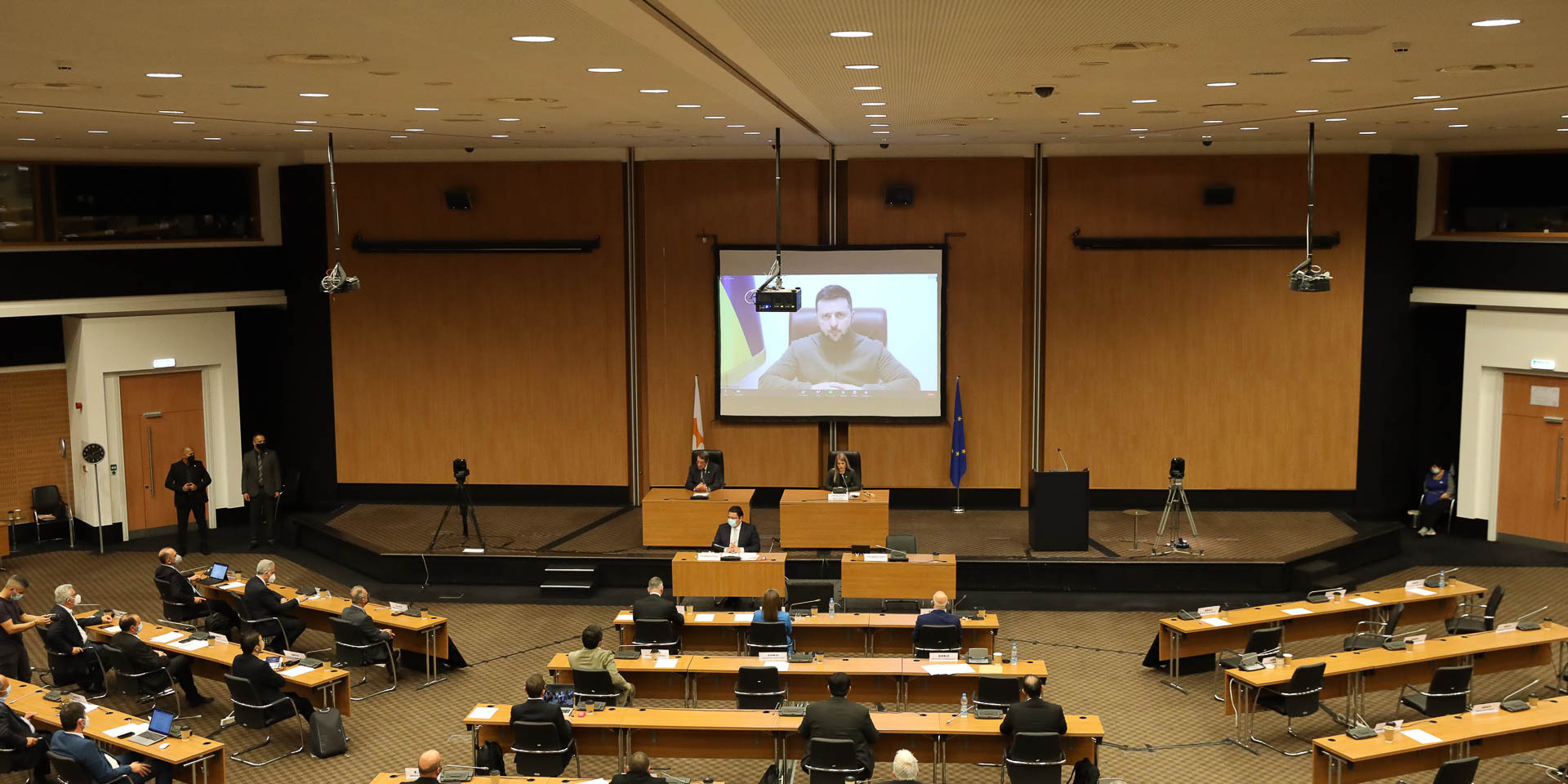Defending Akel’s decision to boycott the speech in the House of Representatives via video link by Ukrainian President Volodymyr Zelenskiy, deputy Aristos Damianou said the party had “reservations about the next day”. This was not the reason for the boycott – the appearance of a fighter of the Azov Battalion during Zelenskiy’s speech to the Greek parliament earlier in the day was the excuse – but it was a major concern for the party.
Before the decision had been taken, the party had concerns as to “how the Cyprus Republic would handle things in relation to our national problem and in relation to other issues at stake, the next day.” By ‘next day’, Damianou was referring to when the war was over and Cyprus would have to deal with a possibly hostile Russia, inferring that Moscow would not be supportive on the Cyprus problem. It never has been supportive, but that is another matter.
Is the Akel leadership so naïve to think that on the ‘next day’ everything will return to how it was on February 23? First, nobody knows how long the war in Ukraine will last and, second, nobody knows what conditions will prevail when it is over. In fact, the biggest likelihood is that nothing will be the same again, with the deep divisions caused by the war set to have a lasting impact on international relations and way the West views Russia.
Countries will have to choose sides and Cyprus could find it difficult to maintain its cozy relations of the past with Moscow. As an EU member, it belongs to the West which now sees Russia as a threat and has imposed crippling sanctions on it excluding it from the world financial system and closing its airspace to Russian planes. The West is waging a non-military war against Russia and Cyprus, by default, is on the side of West.
Adopting the EU sanctions was described as a “non-friendly act” by Russia’s ambassador to Cyprus. The damage to relations that Akel was so worried about was done long before Zelensky addressed Cyprus’ parliament and it is doubtful Moscow will be very forgiving the ‘next day.’ The political leadership, including President Anastasiades, seems to labour under the illusion that everything will return to normal when the war is over and has been very careful in their public talk about what is happening in Ukraine, lest it causes offence to Moscow.
Only Foreign Minister Ioannis Kasoulides appears to have understood the new political reality being shaped and has a clear idea about which side of the world divide taking form Cyprus should be on. This is in stark contrast with his predecessor Nikos Christodoulides who grudgingly condemned the invasion without naming Russia and has avoided saying anything since, which is more in line with Anastasiades and the parties. Of the parties, only Disy has taken a clear pro-West stand, the rest fearing upsetting Moscow and its ambassador.
Earlier this week, Kasoulides spoke of “tectonic changes taking place with regard to international relations, foreign policy and everyone’s role.” He saw this as an opportunity for a settlement of the Cyprus problem and thus stop it from being an obstacle to effective cooperation between the EU and NATO. The war has made the EU attach much greater importance to strengthening its relations with NATO, which were ‘formally’ weakened since Cyprus joined the Union. Turkey objected to formal meetings between the two on the grounds it did not want Cyprus to have access to its military information, rendering relations problematic.
“We cannot have, in the case of the effectiveness of NATO and in NATO-EU relations small weeds, like the Cyprus problem, getting in the way,” Kasoulides told the state broadcaster, who believed that it was time to solve “some issues, considered secondary by the international community.” The foreign minister stated the obvious, which the majority of our politicians calculatingly ignored for decades. The national problem could be solved by Cyprus accepting it belongs to the West instead of constantly looking to Moscow and its spurious ‘principled stand,’ the only objective of which, since Soviet times, was to prevent a settlement and maintain divisions in NATO by keeping Greece and Turkey on a confrontational footing.
Anastasiades and his two predecessors have traditionally looked in the direction of Moscow for an array of disparate reasons, often acting as its representative in the EU. Kasoulides understands that this state duplicity cannot survive in the new world architecture developing as a result of the war. Anastasiades is currently hedging his bets although it is in the interest of the country to make the choice now rather than wait for the ‘next day,’ which could prove too late.







Click here to change your cookie preferences